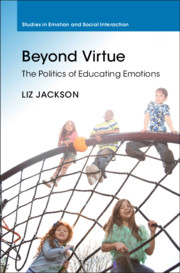“From an early age we were taught how bones, organs, functions and body parts are formed, but we never knew what the soul is made of. “Mario Benedetti
We may not be aware of everything that happens to our emotions throughout our lives. No one has taught us to deal with emotions, to change them or to feel them, it is as if we have forgotten them because they are not visible. But aren’t they fundamental in our daily lives?
- Emotions determine our relationship with the world.
- Our mental health and personal well-being influence each other.
- Emotions are generated according to how we relate to the world around us.
- We are not born with developed thinking.
- Nor with language.
- We cannot even plan what we do when we are young.
- However.
- Our emotions allow the communication and identification of the right and the harmful.
We relate to the world and to the people who inhabit it through crying, smile and spontaneous reactions, so we can say that emotions reflect our physical, mental, social and personal image.
Emotions inform our relationship with the world around us. We feel happy and satisfied when things go well, sad and desperate when things go wrong and threatened with loss.
Our thoughts vary according to the emotions we feel at all times, preparing our body, through our nervous system, for the best response, emotions are like an alarm system, they are activated when they perceive a change in the situation around them, are resources that adapt, that we own human beings and that favor the information most relevant to each of us , in this way they activate different processes that allow us to respond correctly.
We often experience positive emotions in childhood and this promotes the development of an optimistic, safe and outgoing personality, when feeling emotions are negative the opposite happens, so an adequate emotional education will allow us to acquire the skills necessary to properly manage our emotions. reduce negative emotions and greatly increase positive emotions.
In this sense, we can talk, for example, about the ability to resolve conflicts in the best way, as well as dealing with short-term frustration in exchange for a good long-term reward, and learning to manage our moods so that we can are always motivated.
Good emotional education involves a long learning process, in which a vision of the world is built, of ourselves and how we manage our feelings, in addition, each experience has an emotional touch, whether pleasant or not, with adequate emotional development. Can:
? Recover negative emotions faster;
? Take a positive attitude to life;
? Be more optimistic, but not excessive;
? Learn how to express your feelings. Be realistic about self-esteem;
? Have the ability to cooperate and reduce conflicts in the best way.

